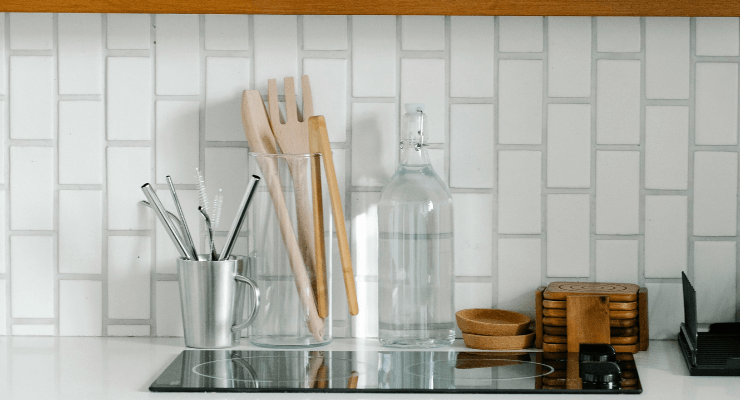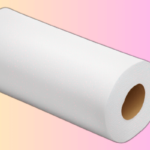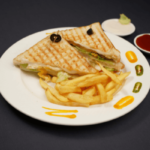
Introduction
Ceramic cookware has gained widespread popularity in kitchens globally, and understandably so. Known for its health benefits, non-stick properties, and aesthetic appeal, ceramic cookware is a fantastic choice for both amateur cooks and professional chefs. However, to keep your ceramic cookware in top condition, it’s essential to use the right utensils. This blog post will guide you through the best and worst utensils to use on ceramic cookware, ensuring you get the most out of your kitchen investment.
Why Choose Ceramic Cookware?
Health Benefits
Ceramic cookware is often touted for its health benefits. Unlike conventional non-stick coatings, ceramic does not contain harmful chemicals like PTFE and PFOA. This makes it a safer choice for cooking at high temperatures, as it won’t release toxic fumes.
Non-Stick Properties
A notable attribute of ceramic cookware is its impressive non-stick capabilities. This makes cooking and cleaning a breeze, allowing you to use less oil and create healthier meals.
Aesthetic Appeal
Ceramic cookware is not only functional but also beautiful. Featuring a range of colors and designs, it can bring an element of sophistication to any kitchen. Its sleek finish and contemporary design make it popular with individuals who appreciate both aesthetics and functionality.
Types of Utensils to Avoid
Metal Utensils
Metal utensils are a definite no-no when it comes to ceramic cookware. The hard, abrasive nature of metal can easily scratch and damage the non-stick surface, reducing the lifespan of your cookware.
Sharp Objects
Similarly, sharp objects like knives and metal spatulas can gouge or chip the ceramic coating. Even small scratches can compromise the non-stick properties, making food more likely to stick and causing the cookware to degrade faster.
Best Utensils for Ceramic Cookware
Wooden Utensils
Gentle on the Surface
Wooden utensils are an excellent choice for ceramic cookware. They are soft to the touch, preventing abrasions and preserving the non-stick coating.
Natural and Eco-Friendly
In addition to being safe for your cookware, wooden utensils are natural and eco-friendly. They decompose naturally and are frequently made from sustainable resources, making them an eco-friendly option for consumers who are conscious of the environment.
Silicone Utensils
Heat-Resistant
Silicone utensils are another great option. Their ability to withstand high temperatures makes them perfect for cooking in conditions where there is a risk of melting or warping.
Flexible and Non-Abrasive
Silicone is both flexible and non-abrasive, making it perfect for use on delicate ceramic surfaces. Its flexibility allows for easy scraping and flipping, ensuring you get the most out of your cooking experience.
Nylon Utensils
Durable
Nylon utensils are resilient and built to endure, rendering them an ideal option for daily culinary tasks. They are highly durable, enduring repeated use with minimal wear and tear compared to other materials.
Safe for Ceramic
Nylon utensils are designed to be safe for non-stick surfaces, including ceramic. They won’t scratch or damage the coating, allowing you to maintain the quality of your cookware for years to come.
Special Care for Coated Utensils
While using the right utensils is crucial, it’s equally important to take proper care of them. Ensure that coated utensils, like those made of silicone or nylon, are cleaned and stored correctly to prevent any damage to their protective layers.
Tips for Maintaining Ceramic Cookware
Proper Cleaning Techniques
Gently wash your ceramic cookware using mild dish soap and a soft sponge to prevent scratching the surface. Refrain from using harsh cleaners or scrubbing pads, as they may harm the non-stick surface.
Storage Recommendations
To prevent damage, it is advisable to avoid stacking ceramic cookware directly on top of one another when storing. To avoid scratches and chips, place a soft cloth or paper towel between each piece when space is limited.
Conclusion
Choosing the right utensils for your ceramic cookware is essential for maintaining its non-stick properties and overall longevity. Wooden, silicone, and nylon utensils are the best choices, as they are gentle on the surface and safe for everyday use. By taking proper care of your utensils and cookware, you can enjoy the long-term benefits and keep your kitchen running smoothly.
Investing in high-quality ceramic cookware and the appropriate utensils will not only enhance your cooking experience but also ensure that your cookware remains in excellent condition for years to come. Happy cooking!
FAQ
Which utensils are optimal for use with ceramic cookware?
The best utensils for ceramic cookware are wooden, silicone, and nylon utensils. These materials are gentle on the ceramic surface, preventing scratches and damage to the non-stick coating.
Why should I avoid using metal utensils on ceramic cookware?
Metal utensils are abrasive and can easily scratch and damage the non-stick coating of ceramic cookware. Over time, this can compromise the cookware’s performance and lifespan.
Can I use plastic utensils on ceramic cookware?
Yes, but it’s preferable to use utensils specifically made from silicone or nylon. Regular plastic utensils can be more brittle and may not handle high temperatures as well as silicone or nylon, which are designed to be more durable and heat-resistant.
How can I maintain my ceramic cookware to prolong its life?
Take care of your ceramic cookware by washing it with gentle dish soap and a soft sponge. Refrain from using harsh cleaners or abrasive pads. Moreover, carefully store your cookware by placing a soft cloth or paper towel between each item to avoid scratches and chips.
Are bamboo utensils safe for ceramic cookware?
Yes, bamboo utensils are safe to use on ceramic cookware. They are similar to wooden utensils in that they are gentle on the non-stick surface and eco-friendly.
How should I handle a situation where my ceramic cookware has developed scratches?
If your ceramic cookware is scratched, it’s best to minimize further damage by avoiding metal utensils and using only gentle cleaning methods. In case the cookware’s performance is significantly affected, consider replacing it to ensure safe and efficient cooking.
Can I use electric beaters or hand mixers with ceramic cookware?
It’s generally not recommended to use electric beaters or hand mixers directly in ceramic cookware, as these can cause scratches and damage the surface. Mix ingredients in a separate bowl to protect your cookware.
Is it safe to pair silicone baking mats with ceramic cookware?
Certainly, silicone baking mats can be used safely with ceramic cookware. They offer a non-stick surface and safeguard the ceramic coating from possible harm while cooking or baking.
By following these guidelines and selecting the appropriate utensils, you can maintain the quality and longevity of your ceramic cookware, ensuring optimal performance in your kitchen.
As an Amazon Associate, I earn from qualifying purchases.



